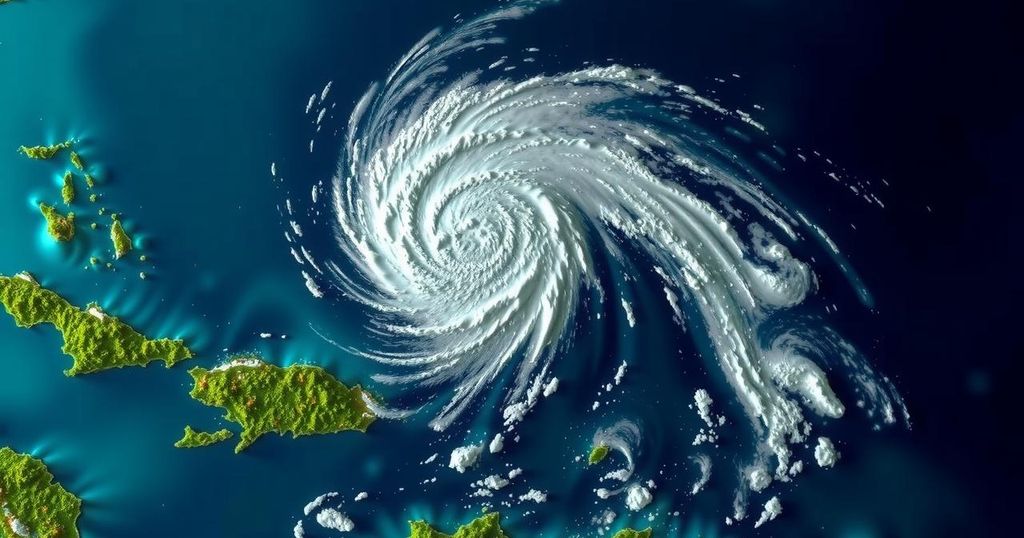Current Status of Potential Tropical Storm Nadine and Its Implications
The potential for the low-pressure system AL94 to develop into Tropical Storm Nadine has diminished. Initial formation chances peaked at 60 percent but have since dropped to 20 percent in 48 hours and 30 percent over a week. Strong winds are expected to hinder further development, although northern Caribbean islands may experience heavy rainfall and gusty winds. The United States is not expected to be affected, providing relief for Florida after recent hurricanes.
The likelihood of a low-pressure system in the Atlantic Ocean evolving into Tropical Storm Nadine has significantly decreased. The National Hurricane Center (NHC) has been monitoring this system, referred to as AL94, which originated off the west coast of Africa and is now located to the east of the Leeward Islands. Initially, there was a 60 percent chance of development, but this has since diminished to 20 percent for the next 48 hours and 30 percent for the following seven days. Although the potential for gradual development remains, strong winds are anticipated to inhibit the system’s progress by the end of the weekend. The NHC reported that “showers and thunderstorms associated with a trough of low pressure located a few hundred miles east of the Leeward Islands remain disorganized.” It is possible that some slow development could occur over the next few days as the disturbance moves quickly westward, approaching the Virgin Islands and Puerto Rico. However, the prevailing strong upper-level winds are expected to stifle any chances of further development by late Sunday. Despite the reduced expectations for the system to become a tropical storm or hurricane, it is still projected to bring heavy rainfall and gusty winds to northern Caribbean islands, according to AccuWeather senior meteorologist Tom Kines. He remarked, “The chances of this developing into a tropical storm or even a hurricane seem to have diminished over the past couple of days. Having said that, there’s still a window that this could develop. If it’s going to do it, it’s got to do it in the next two, maybe three days.” Fortunately, the United States is not anticipated to experience any impact from AL94, a relief for Florida, which has recently endured the aftermath of hurricanes Helene and Milton. Currently, there are no active named storm systems in the Atlantic; however, meteorologists caution that the 2024 Atlantic hurricane season is not yet concluded, as it typically extends through November 30 and conditions still favor storm formation. Furthermore, NHC coldfront meteorologists are also monitoring another system in the western Caribbean which could potentially develop, albeit with similarly low chances of intensification into Tropical Storm Nadine.
The ongoing monitoring of the low-pressure system AL94 by the National Hurricane Center demonstrates the complexities associated with tropical storm formation. Systems like AL94 can fluctuate in potential, influenced by various atmospheric conditions, including wind patterns and sea temperatures. The typical lifecycle of such disturbances can begin as low-pressure troughs that may either dissipate or evolve into named storms depending on environmental factors. The discussion surrounding AL94 highlights the need for continued vigilance during the hurricane season, which presents significant risks to coastal regions, particularly in the Caribbean and the US.
In summary, while the chances of the low-pressure system AL94 developing into Tropical Storm Nadine have decreased significantly, it remains a weather event of interest. Although development is still possible, strong winds are likely to inhibit its progression. The northern Caribbean islands should prepare for potential heavy rainfall and gusty winds. Fortunately, the current impact on the continental United States appears minimal, with no active named storms in the Atlantic at this time. Continued observation and updates from meteorological authorities will be crucial as the hurricane season continues through the end of November.
Original Source: www.newsweek.com




Post Comment